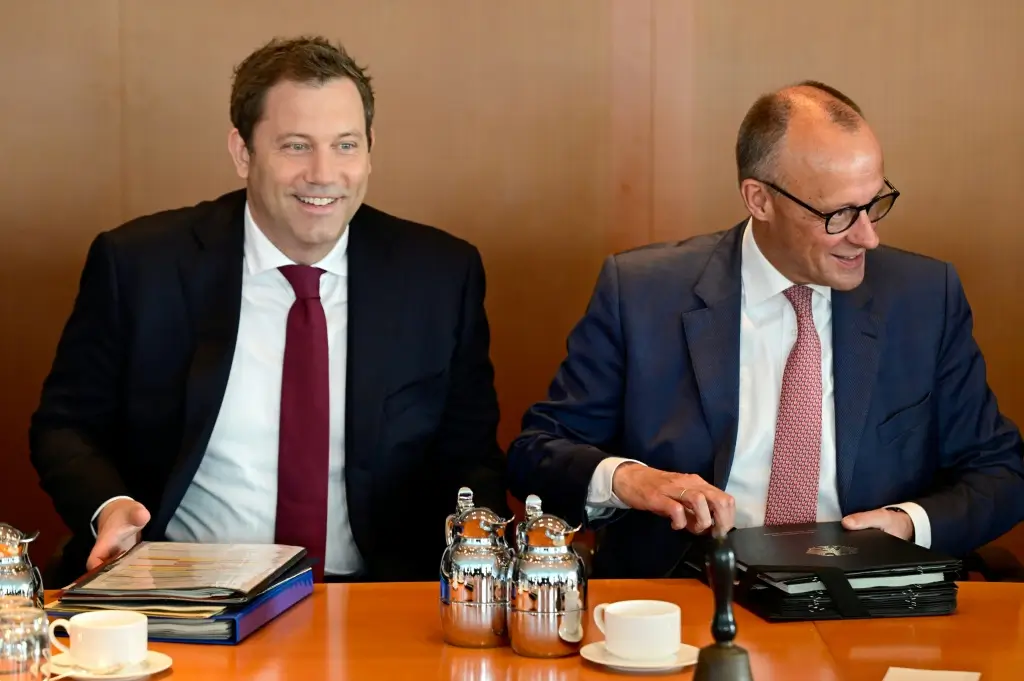
Record levels of investment and defense spending, but despite massive debt, a huge financial gap starting in 2027: The Federal Cabinet approved the draft budget for 2026 and the financial planning for the coming years on Wednesday. Federal Finance Minister Lars Klingbeil (SPD) defended the massive borrowing in the budget – but offered little hope for further relief in the coming years due to the billions still missing.
"Our primary goal is to secure jobs and ensure new economic strength," said Klingbeil. He pointed to record investments of €126.7 billion, which will be used, among other things, to modernize transport infrastructure, education and care, and new housing.
The 2026 budget provides for total expenditures of €520.5 billion. Defense spending, including funds from the Bundeswehr Special Fund, will rise to a total of €108 billion. To finance the budget, new debt of €174.3 billion will be incurred – roughly half of which will come from the new special fund for infrastructure and climate protection and from the Bundeswehr Special Fund. The coalition government plans to raise a total of almost €850 billion in debt by the end of the 2029 legislative period.
Nevertheless, Klingbeil said there is considerable pressure to consolidate the budget. As early as 2027, there will be a budget gap of over €30 billion, and for the three years from 2027 to 2029, according to his ministry, it will be as much as €172 billion. "Everyone sitting at the cabinet table will have to cut costs," the finance minister emphasized.
Klingbeil highlighted the relief for citizens now planned in the 2026 draft budget. He cited, for example, the increase in the commuter allowance to 38 cents per kilometer and the reduction in sales tax in the restaurant industry. The Finance Minister emphasized that he would "pay close attention" to ensuring that the latter is passed on by the industry to customers through price reductions.
However, the SPD leader expressed little hope for additional relief for citizens after 2026. He said he knew there were many requests for relief in areas such as energy and transport. However, the federal government's "main priority" must be closing the multi-billion dollar financial gap. "If there's scope for maneuver, I'm open to any good idea."
Green Party leader Felix Banaszak accused the CDU-SPD coalition of "either suppressing, ignoring, or somehow postponing the central problems." While the coalition had agreed on issues like expanding the mother's pension, future challenges like climate protection were "completely put on the back burner," he said on Deutschlandfunk radio.
Left Party leader Ines Schwerdtner criticized the federal government for presenting "a purely defense budget." She called it "a mockery" that the debt brake had been relaxed for defense spending, but not for people's everyday needs like housing or education.
The AfD criticized an "unprecedented spending explosion" financed by debt. Klingbeil apparently wanted to create "a kind of social democratic paradise," explained the AfD parliamentary group's budget policy spokesman, Michael Espendiller. "As always, the citizens will foot the bill."
The Federation of German Industries (BDI) emphasized that the "investment budget" passed by the government was "the right signal." However, it lacked "a discernible willingness to implement structural reforms." The federal government now faces an autumn "with uncomfortable but necessary decisions for further reforms and cuts in consumer spending."
The German Confederation of Skilled Crafts (ZDH) criticized "the fact that key promises to ease the burden on small and medium-sized businesses are not being implemented." This applies, for example, to the electricity tax cut announced in the coalition agreement, which now initially only applies to industry, agriculture, and forestry. An income tax cut is also missing. "The coalition urgently needs to work on this."
The draft budget still has to be approved by parliament this fall. It is expected to be passed by the Bundestag at the end of November and by the Bundesrat in December.